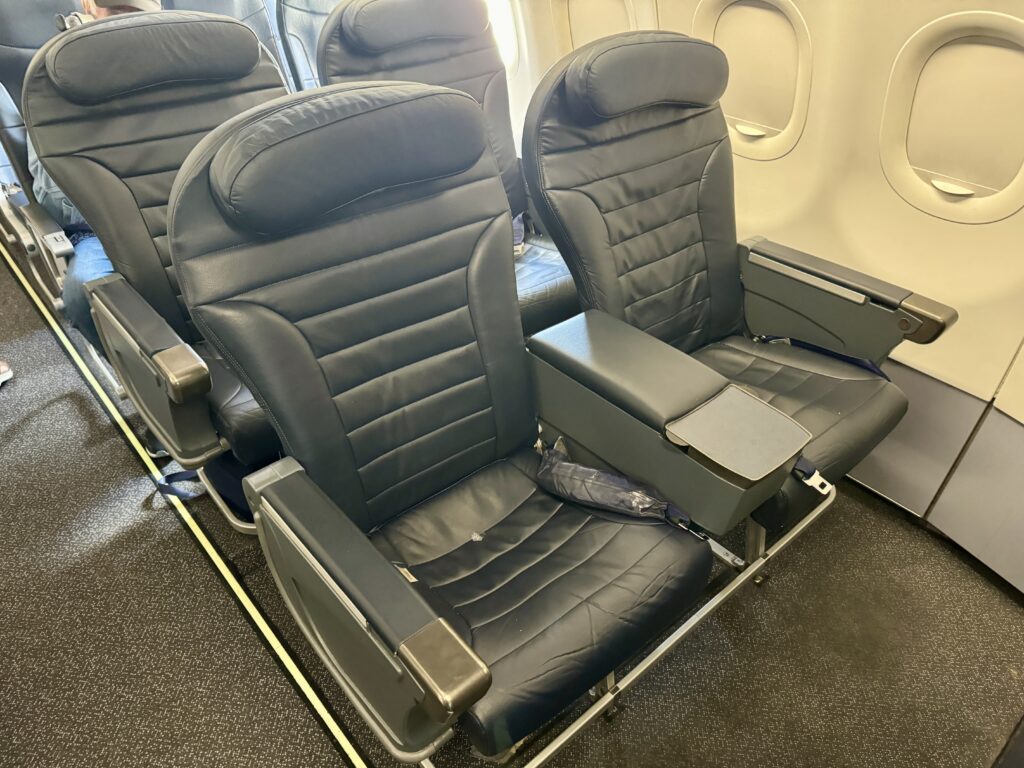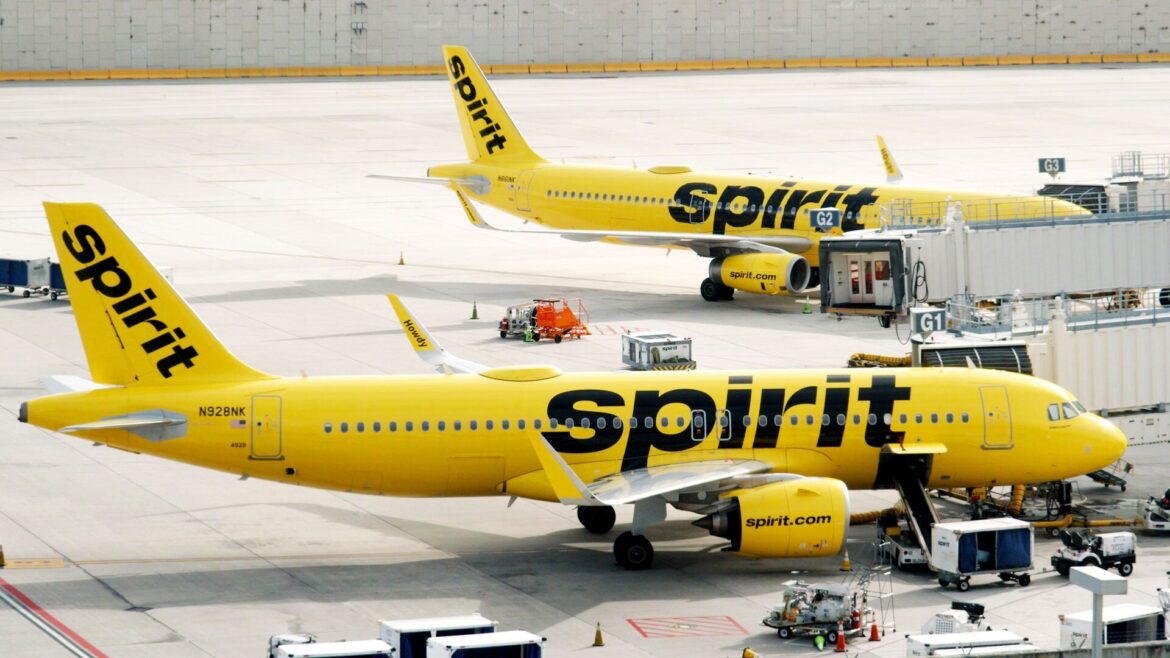Advertiser & Editorial Disclosure: The Bulkhead Seat earns an affiliate commission for anyone approved through the links below. This compensation may impact how and where links appear on this site. We work to provide the best publicly available offers to our readers. We frequently update them, but this site does not include all available offers. Opinions, reviews, analyses & recommendations are the author’s alone, and have not been reviewed, endorsed, or approved by any of these entities.
Frontier Airlines announced plans to acquire Spirit Airlines back in February 2022. The goal was to create a larger, low-cost carrier that could better compete against American, Delta, Southwest, and United. JetBlue countered with a $3.8 billion deal to acquire Spirit. That deal was terminated in March 2024 after the Department of Justice (DOJ) won its case to block the merger in January. Now, The Wall Street Journal reports that early-stage merger talks are beginning as Spirit considers filing for Chapter 11 bankruptcy and restructuring (this could all be tied together).
Spirit’s financials have not been pretty (it reported a net loss of $192 million in Q2). It recently extended its debt restructuring deadline with Visa and Mastercard (it’s now December 23rd versus earlier this week). The airline needs to refinance $1.1 billion in bonds or it will not be able to process credit card transactions in 2025. It needs a solution to all of its myriad issues and a merger might be the answer.
Low-cost carriers and Spirit in particular have had a rough time the past few years as full-service airlines thrived and broke all sorts of records. Passengers shifted to want more premium experiences. This coupled with higher labor costs and issues around aircraft delivery have all contributed to the current state.

Both Spirit and Frontier have been making efforts to appeal to customers who were booking away from low-cost carriers. In the past several months:
- Frontier brought out more transparent pricing and eliminated change and cancellation fees.
- Spirit countered and also axed change and cancellation fees.
- Spirit introduced bundled fares and turned its Big Front Seats™ into more of a First Class experience. This also included an updated boarding process and premium check-in areas.
I tested the new service up front (review here) and found it to be on a par with what I largely experience with United, Delta, etc. The question is now, is this all too little, too late?
While a combined airline will put price pressure on other airlines and help to keep fares lower, I think any notion of a premium offering (i.e. the Big Front Seats™) will be a thing of the past. I guess that will be fine for most customers, but it will push me away from Spirit and I will abandon my Gold status there.
Anthony’s Take: This is all very early and largely speculative. I won’t be happy if the airlines merge as I think that the parts of Spirit that I like will go away. A merger has been blocked before (albeit a different one). We’ll see what happens next.
(Featured Image Credit: Spirit Airlines.)
User Generated Content Disclosure: The Bulkhead Seat encourages constructive discussions, comments, and questions. Responses are not provided by or commissioned by any bank advertisers. These responses have not been reviewed, approved, or endorsed by the bank advertiser. It is not the responsibility of the bank advertiser to respond to comments.
Advertiser & Editorial Disclosure: The Bulkhead Seat earns an affiliate commission for anyone approved through the links above This compensation may impact how and where links appear on this site. We work to provide the best publicly available offers to our readers. We frequently update them, but this site does not include all available offers. Opinions, reviews, analyses & recommendations are the author’s alone, and have not been reviewed, endorsed, or approved by any of these entities.
